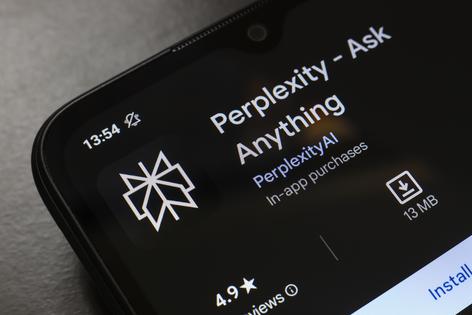AI is here to stay; use it, but beware
Artificial Intelligence is the buzzword that is driving the stock market and economic capital these days. It is showing up on your smartphone, in your communications with medical providers and in your online searches.
You can’t avoid AI. Indeed, you need to understand it so that you can use it wisely, turn it to your advantage in making important decisions — and avoid being taken in by scams, disinformation, and fraud. Ignore AI at your own peril.
You may be from the generation that researched school projects at the card catalog in the library or using the encyclopedia. (If you don’t know what those things are, ask your parents or grandparents!) When Google search arrived in 1998, it suddenly allowed you to find answers to almost every bit of knowledge that was ever published. But you still had to decide how to make those facts useful.
Then along came artificial intelligence. AI became available to the general public with the first version of Chat GPT in November 2022. Millions signed up for the free app, which allowed an entirely new level of information to be distributed. Not only could you get links to facts, but Chat GPT introduced a new paradigm: “generative AI” that not only finds information, but transforms it into usable outputs. It can write a report or help you decide where to travel, or distill an entire book into a short outline.
Artificial intelligence feeds on itself, using LLMs — large language models — as its input. The more information it can probe, the “smarter” it gets. That has led to “agentic AI” — a new class of artificial intelligence that emphasizes autonomy, initiative and adaptability. It can act independently, make decisions, pursue specific goals and adapt dynamically to changing environments.
In short, AI is computerized neural networks doing all sorts of things that formerly required human intelligence and creativity to accomplish. And it can do those things almost instantaneously. This is an incredibly powerful tool literally at your fingertips.
Optimists believe that AI will diagnose and develop cures for disease, personalize education and free people from repetitive and monotonous tasks by creating robots to perform them.
On the other hand, many fear that today’s top paying jobs will be destroyed by AI, since the computer can do the “knowledge work” of everyone from law clerks to call centers. Oh, well, we will always need plumbers and electricians.
But there are even greater fears when it comes to AI. The first is “hallucinations” — the very real phenomenon of AI making up answers that sound very convincing. There are well-known instances of lawyers using AI to write briefs that cited cases which never existed! AI can make huge mistakes — though there is hope those will be less frequent and damaging as AI “learns” more.
And that leads to the second great fear — that AI will learn too much. The greatest fear is that AI will become smarter than humans — and perhaps destroy humanity. Geoffrey Hinton, known as the "godfather of AI," has repeatedly warned that the technology he helped develop could pose an existential risk, with a 10% likelihood that AI could wipe out humans. Similarly, the late theoretical physicist Stephen Hawking stated that AI could spell “the end of the human race.”
Other experts in the field argue that the doomsday scenarios are overblown. But what are the practical pros and cons of AI in your daily life?
Don’t avoid AI out of fear or technological intimidation or philosophical concerns. You could benefit by considering it a handy tool that can improve your life and give you more time to enjoy the things you really want to be doing.
If you have a smartphone, you’re already using it. AI powers your phone’s autocorrect, spam filters in your email and even those targeted ads that seem to know what you’re about to buy.
Google has incorporated AI into the search engine you already use. But even better, you can download the free apps for ChatGPT or Perplexity, or use Microsoft’s Co-pilot. Your AI app can become your default search engine, broadening your perspective.
While AI can help organize financial information and explain investment concepts, it would certainly be unwise to delegate financial decisions to an AI adviser. For one thing, AI does not yet have an understanding of human emotion. And it’s just those emotions — fear, greed, panic — that engender the most mistaken investment decisions. AI will not hold your hand in a bear market!
Also consider privacy. Every time AI helps with a task, it’s gathering data. Where does that info go, and who is using it? Scams powered by AI are more convincing than ever, so double-check before clicking through a seemingly great offer or engaging with a voice that pretends to be your bank — or a needy relative. Understand that an astounding online video might not be real but rather created by AI. You still need to use your human intelligence to assess the words and pictures in front of you.
AI is a new tool, not a magic wand. Just as you learned how to use a smartphone or the Internet, it’s time to appreciate and use AI. One thing is sure: AI is here to stay. That’s the Savage Truth.
========
(Terry Savage is a registered investment adviser and the author of four best-selling books, including “The Savage Truth on Money.” Terry responds to questions on her blog at TerrySavage.com.)
©2025 Terry Savage. Distributed by Tribune Content Agency, LLC.















Comments